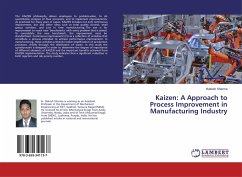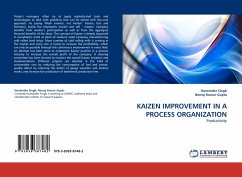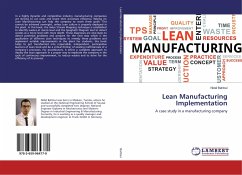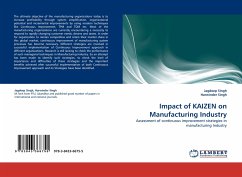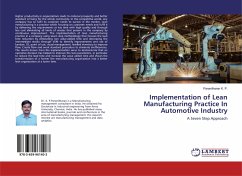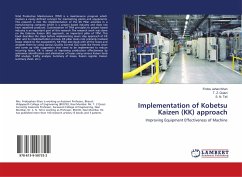The KAIZEN philosophy allows employees to problem-solve, to do quantitative analyses of their processes, and to implement improvements. As practiced for many years in Japan, KAIZEN includes not only continuous improvement, but also other ideas such as total quality control, small group activities, and just in time manufacturing. The aim is for improvement to reach new benchmarks with every problem that is solved. To consolidate the new benchmark, the improvement must be standardized. Continuous improvement (CI) as a collection of activities that constitute a process intended to achieve performance improvement. In manufacturing, these activities primarily involve simplification of production processes, chiefly through the elimination of waste. In this study the questionnaire is designed in order to determine the degree of importance of different elements of KAIZEN and the important benefits achieved from KAIZEN implementation. The study indicates that a significant reduction in both rejection and risk priority number.
Bitte wählen Sie Ihr Anliegen aus.
Rechnungen
Retourenschein anfordern
Bestellstatus
Storno

